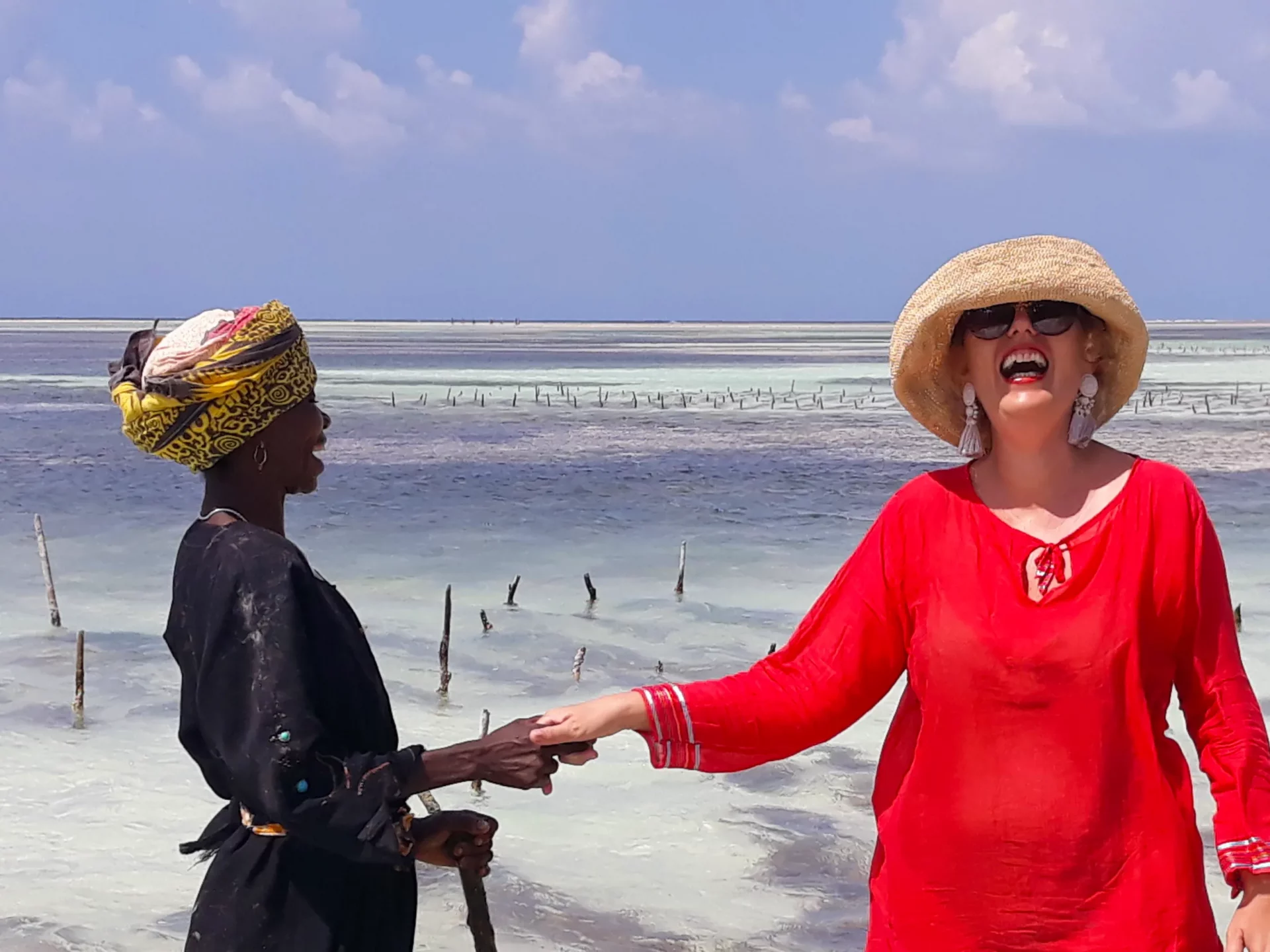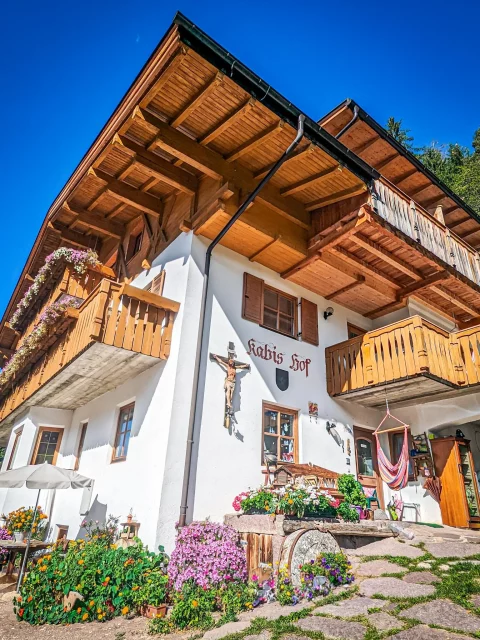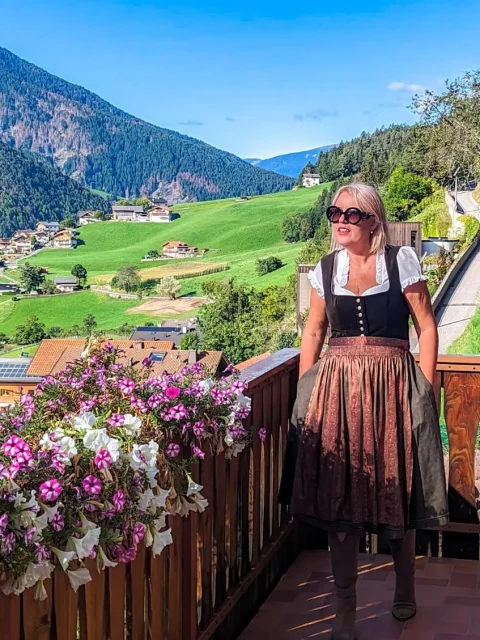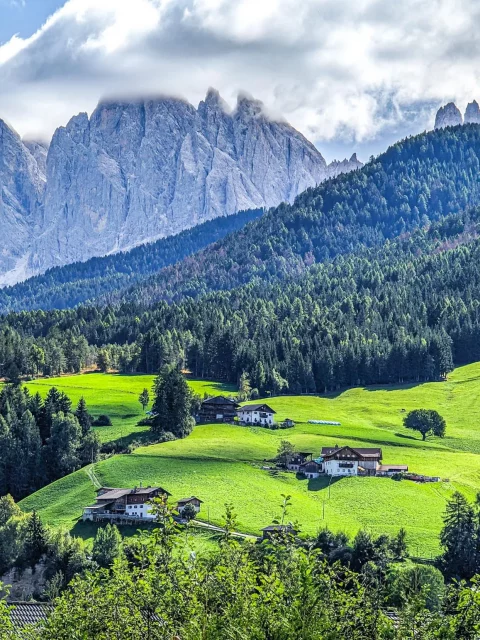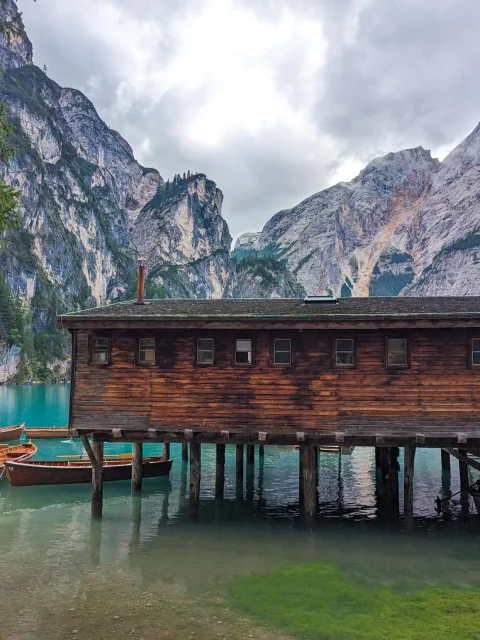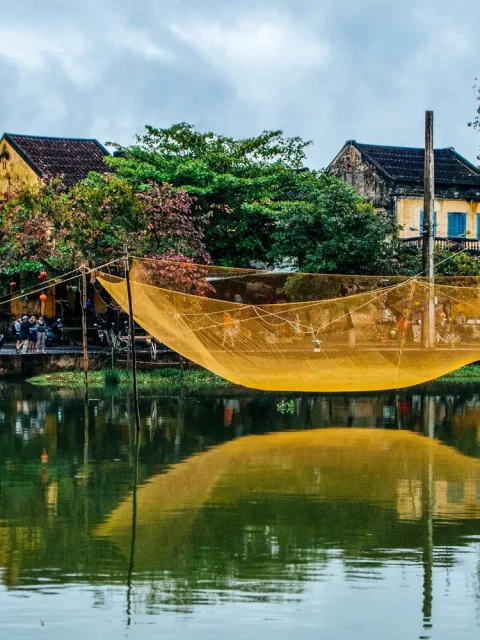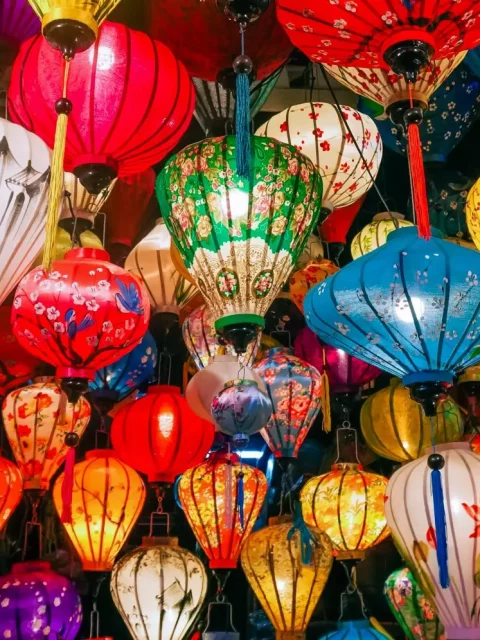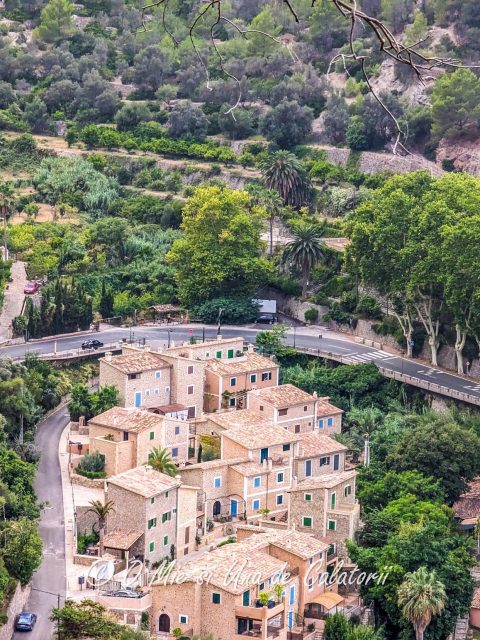I used to watch her when the ocean receded, and the breeze swept the shore. Armed with a bunch of sticks, her silhouette advanced through the water, sometimes reaching up to her knees. No, the scorching sun didn’t deter her. She moved with care, like a discreet shadow, among the stakes embedded in the ocean floor. I watched her for days on end.
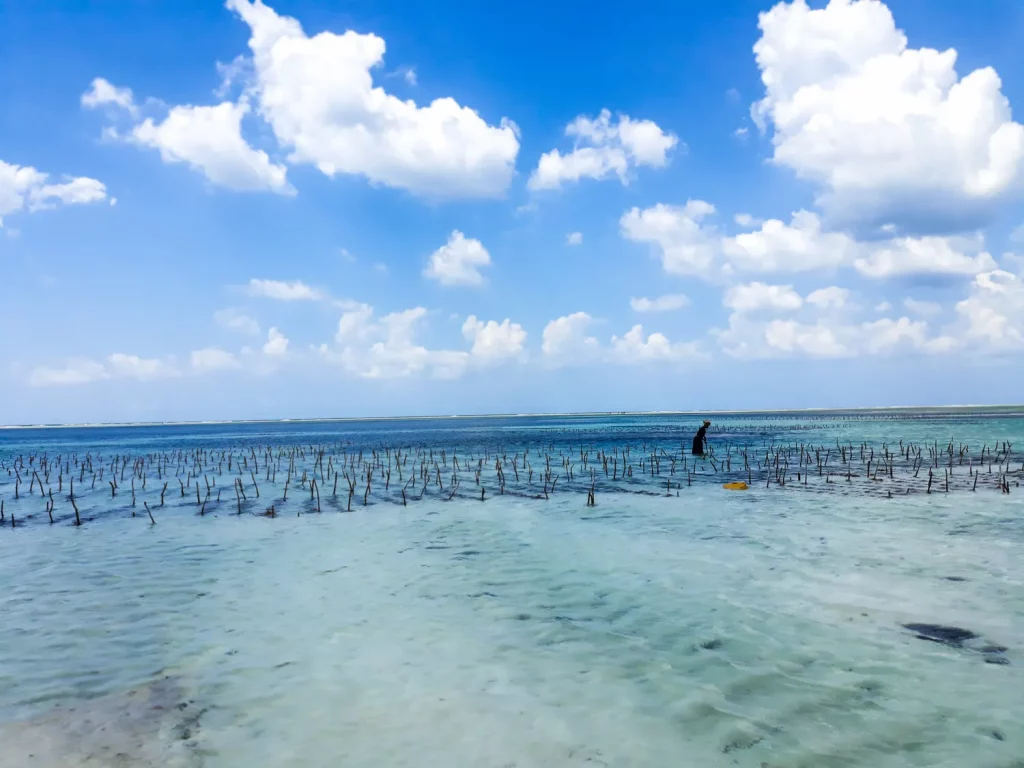
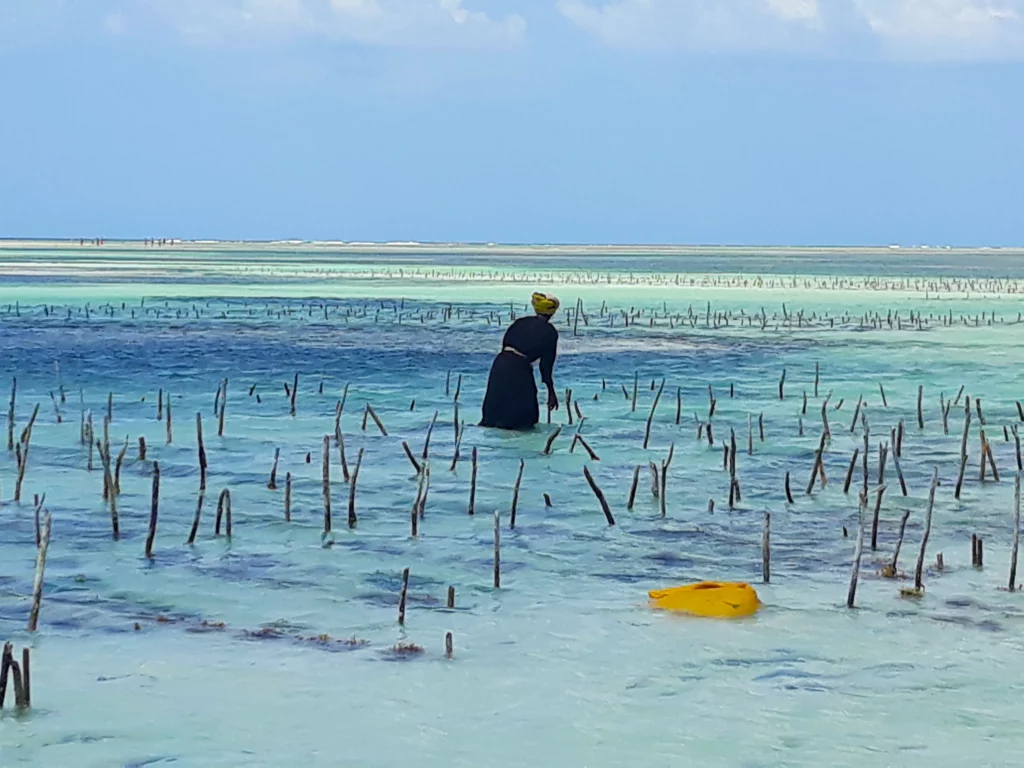
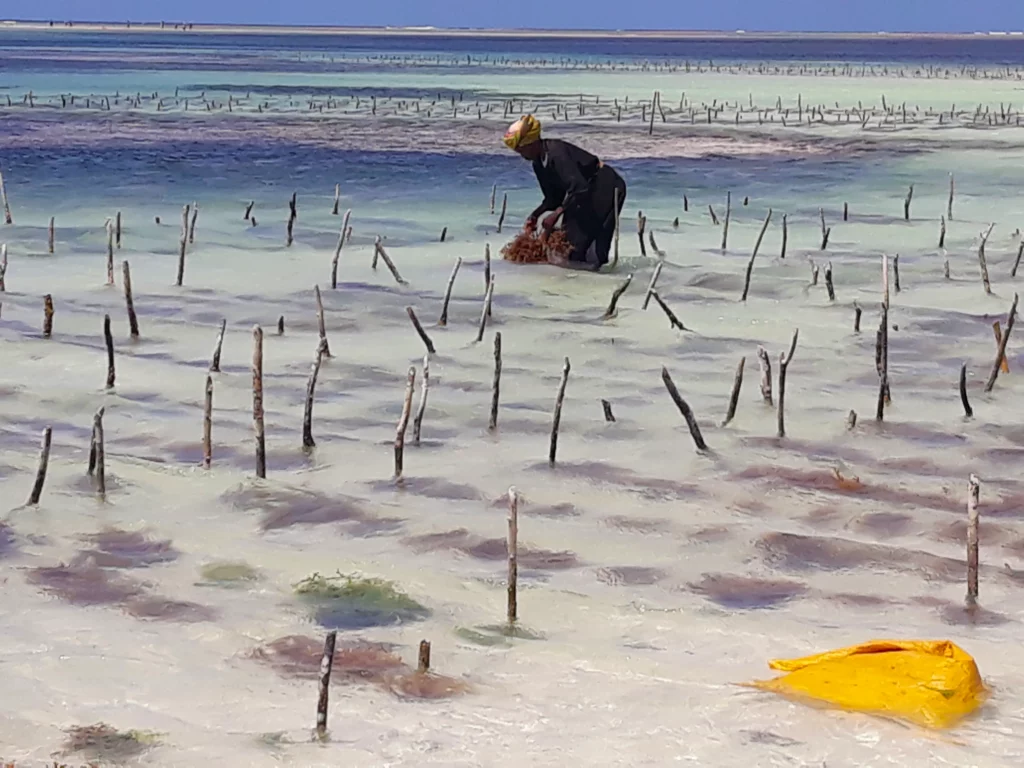
One morning, we approached her. Rows of small sticks, tied together with strings on which brown bundles timidly clung, emerged from the shallow waters. It was a seaweed farm. We tried to strike up a conversation in English with the woman engrossed in the treasure nestled in the waters of the Indian Ocean. She responded in Swahili, while a smile lit up her sunburned face. I looked into her eyes. Mysterious and incredibly expressive, they mirrored what her soul wished to convey: seaweed farming was her family’s only chance at survival. Sensitivity intertwined with the tenacity to overcome Africa’s adversities. We were overwhelmed. The mixture of curiosity and compassion was overpowering. The people of Africa make you contemplate, ask questions, and seek answers.
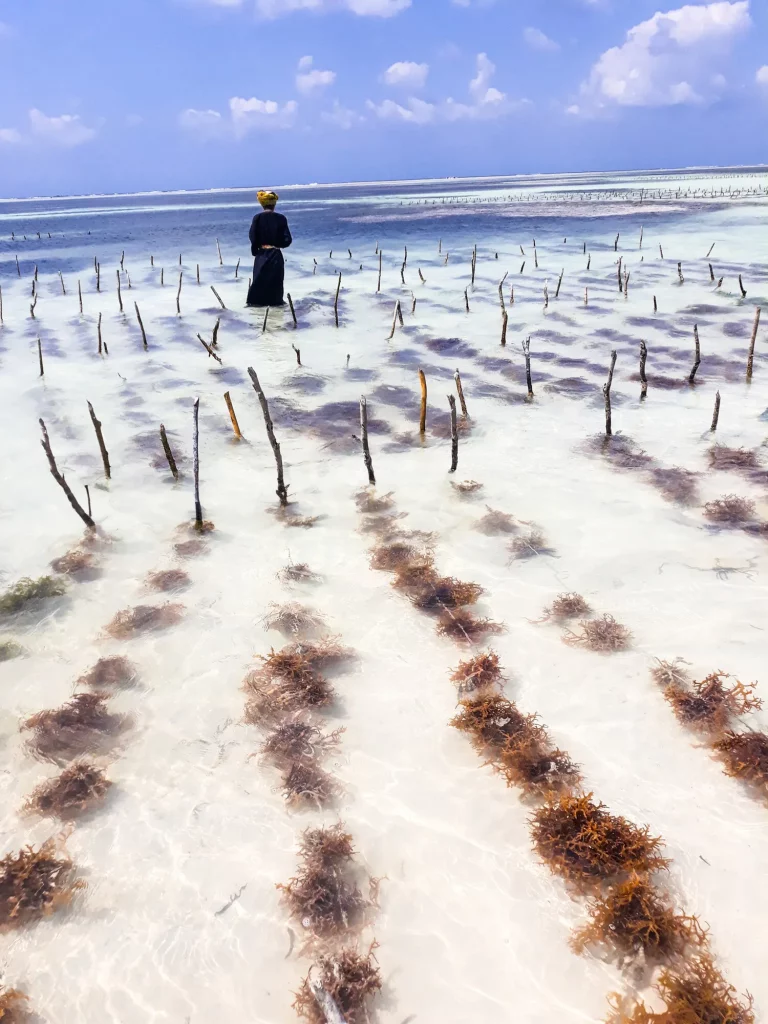
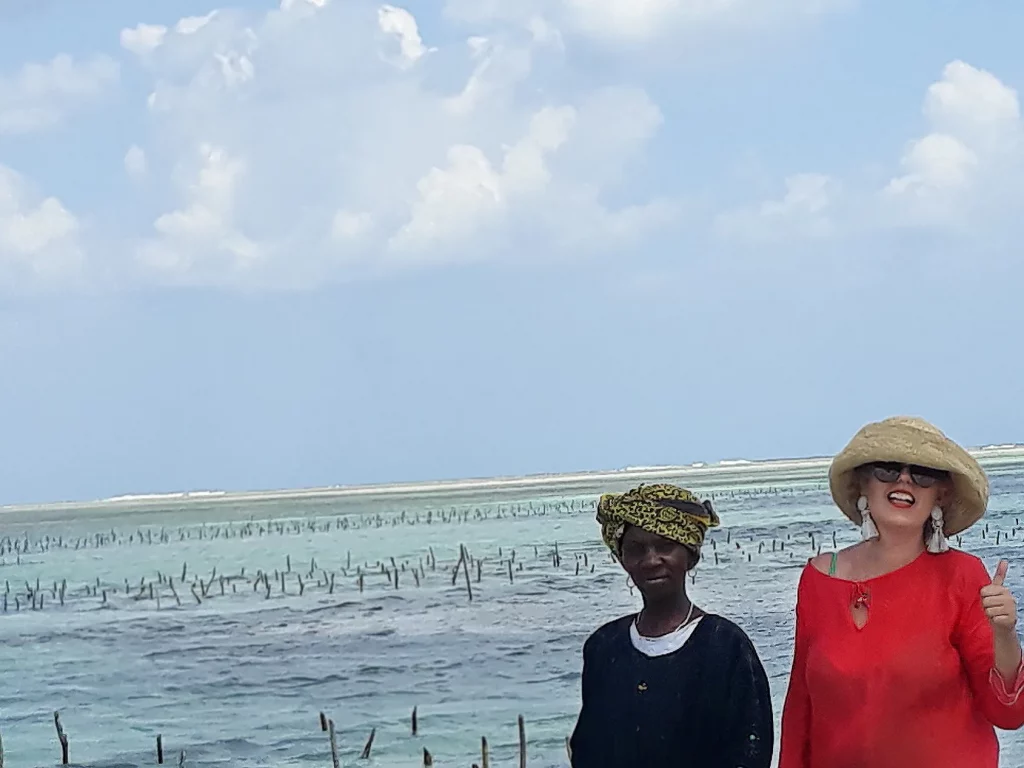
Seaweed farming has transformed the lives of women in Zanzibar, as 90% of those working on these farms are women. We thought it was a traditional activity, but to our surprise, we learned that this occupation was introduced only in the late 1980s, with seaweed quickly becoming one of Zanzibar’s key exports. After the Philippines and Indonesia, it became the world’s third-largest seaweed exporter. Nowadays, the residents are worried because due to rising sea temperatures, the seaweed is dying. They are considering the solution of cultivating seaweed further from the shore, where the water is cooler, but they face the fact that most women do not know how to swim.
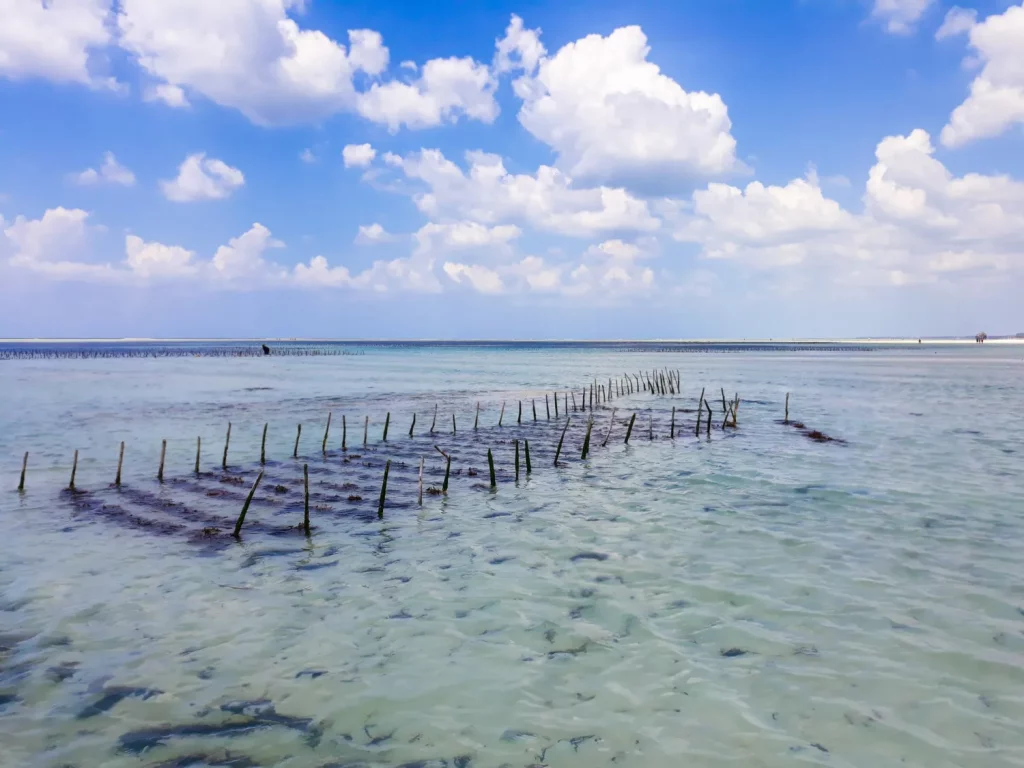
Access to seaweed farming is limited to a few hours a day when the ocean recedes. When the seaweed matures, it is harvested and taken to the shore. After harvesting, it is left to dry.
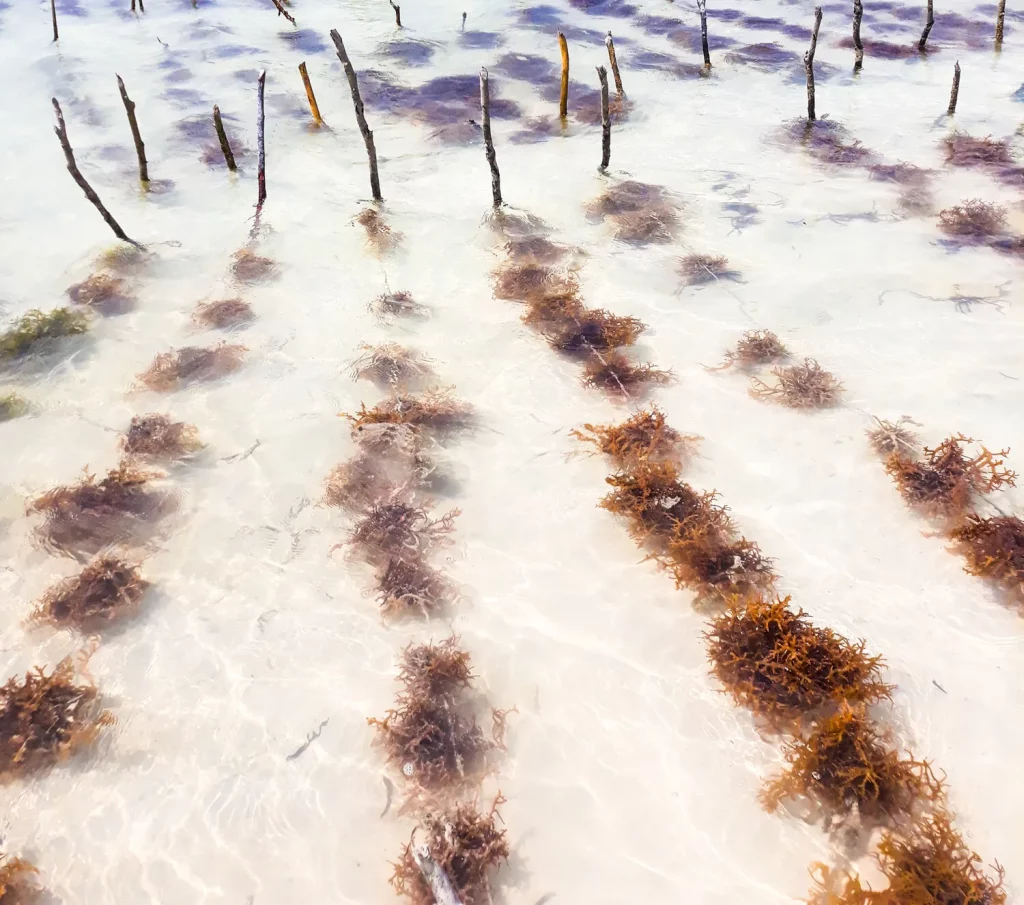
Rich in fibre, with varying levels of iodine content, an excellent source of protein, fats, and vitamins, used in alternative medicine, the cosmetics industry, or as food, seaweed remains somewhat in the background. Zanzibar’s primary export is spices, rightly known as the “Spice Island.”
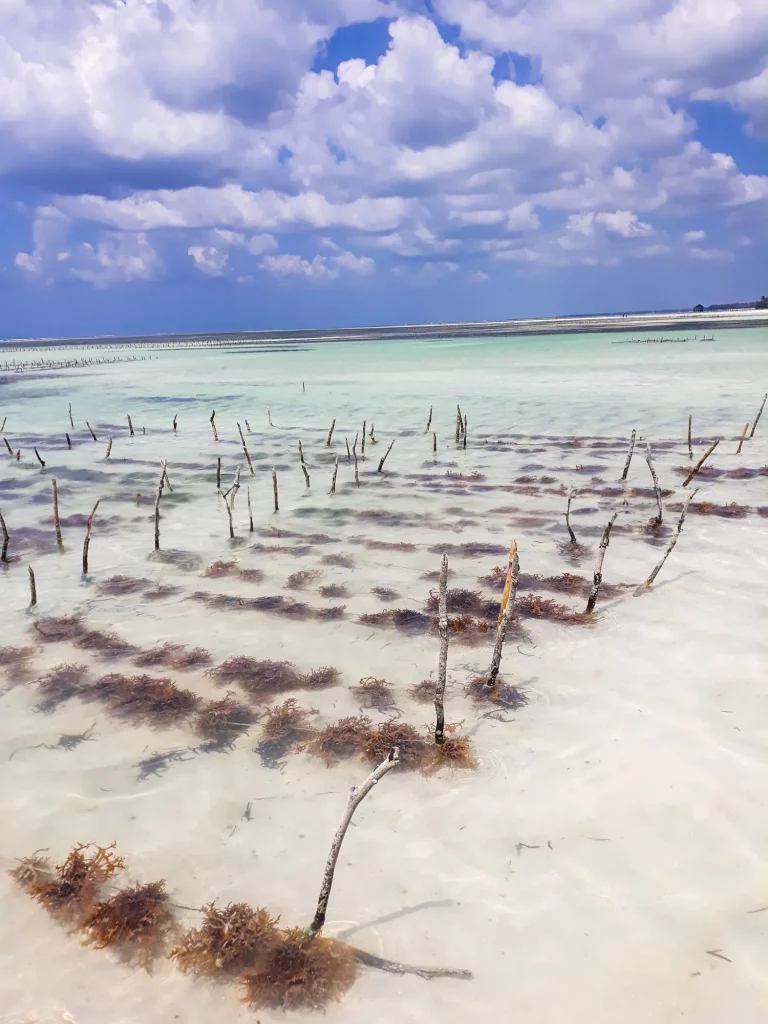
Thank you for reading our article. It’s a joy that you follow us, but it’s also an obligation: to always support you with useful information, recommendations, and tips for flawless vacations.
Please don’t forget that we also have social media pages: a YouTube channel where we try to add value to our articles through video and sound, an Instagram page where we upload photos from our adventures and a Facebook page where you can stay updated with our latest articles and information, you can find the links around the site.


